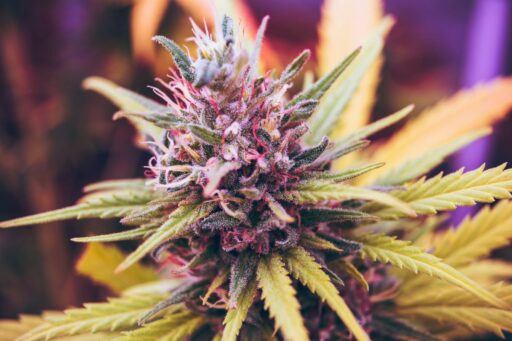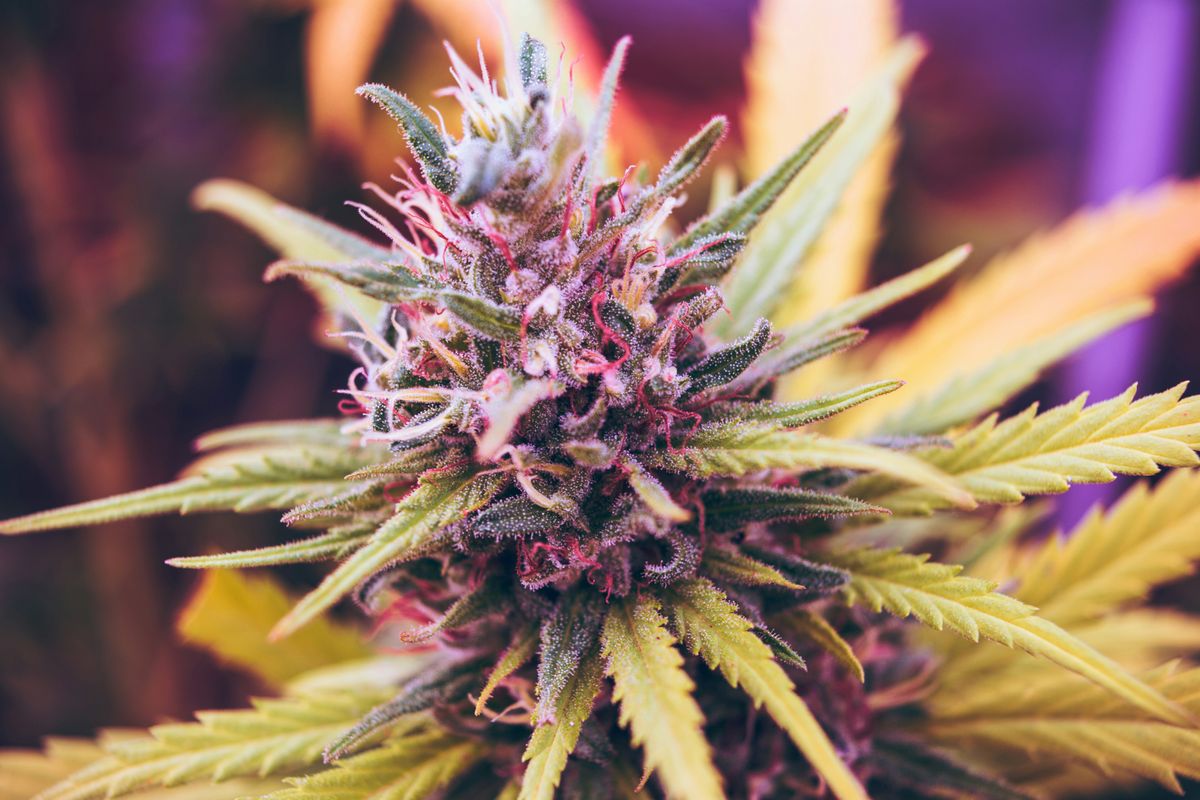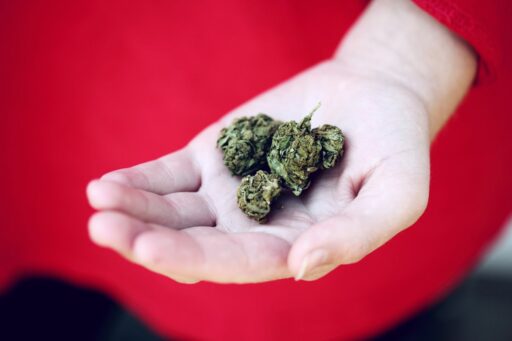The landscape of marijuana legality and access in Florida is rapidly evolving, reflecting broader trends in public opinion and legislative reform. This article delves into the current legal status of cannabis in the state, exploring the historical context, medical versus recreational use, and the regulatory framework. It also examines shifts in public perception, the economic implications of legalization, the challenges faced by medical cannabis users, and the future of cannabis consumption lounges. The information provided offers a comprehensive update on the multifaceted issues surrounding cannabis in Florida.
Key Takeaways
- Florida’s cannabis laws are complex, with a clear distinction between medical and recreational use, and a regulatory framework focused on compliance.
- Public opinion in Florida has shifted significantly over time, with increasing acceptance and a decreasing perception of risk associated with cannabis use.
- Access to medical cannabis in Florida is regulated, with specific qualifying conditions for patients and a network of dispensaries that face various challenges.
- The legalization of cannabis has notable economic benefits for Florida, including revenue generation, job creation, and potential public health and safety impacts.
- The concept of cannabis consumption lounges in Florida presents legal and social challenges, requiring careful consideration of regulatory approaches and community impact.
Current Legal Status of Cannabis in Florida

Historical Context and Recent Legislation
The journey of cannabis legislation in Florida has been marked by significant shifts, reflecting a broader national trend towards re-evaluating the legal status of marijuana. Historically, cannabis has been strictly regulated, with penalties for possession and distribution. However, recent years have seen a wave of legislative changes aimed at loosening these restrictions, particularly for medical use.
In the context of these changes, it’s crucial to distinguish between the implications for medical versus recreational use. The evolving legal landscape has been shaped by a growing body of epidemiological research, which informs attitudes and behaviors towards cannabis consumption. This research underscores the need for policies that balance drug control measures with public health objectives.
The complexity of cannabis legislation is evident in the overlap between medicinal and recreational use, which poses challenges for policymakers preparing for the wider consequences of legalization.
Florida’s recent legislation reflects a nuanced approach to cannabis, with careful consideration of public health, social, and economic costs. As the state continues to navigate this evolving issue, it remains essential to monitor the implications of these legislative changes on the community.
Medical vs. Recreational Use
In Florida, the distinction between medical cannabis and recreational weed is significant, both legally and in terms of user intent. Medical cannabis is used to cure, treat, or prevent physical or psychiatric diseases, often involving products containing THC and CBD. Recreational use, on the other hand, is consumption for pleasure or to alter one’s state of consciousness.
While both medical and recreational cannabis fall under legal categories, they cater to different needs and are subject to varying regulations and societal perceptions.
Understanding the overlap and differences between these uses is crucial, especially as the state navigates the complexities of regulation and public health. Here’s a breakdown of user categories based on their reported use:
- Medical users: Those who consume cannabis exclusively for medical purposes.
- Recreational users: Individuals who use cannabis solely for pleasure or to induce an altered state.
- Dual users: People who report using cannabis for both medical and recreational reasons.
- Non-disclosed users: A portion of users prefer not to disclose their recreational cannabis use status.
Regulatory Framework and Compliance
In Florida, the regulatory framework for cannabis is designed to ensure the safety and compliance of all entities involved in the industry. The establishment of clear guidelines is crucial for the operation of businesses within the legal cannabis market. These regulations cover a wide range of aspects, from licensing requirements to operational standards, including the need for proper ventilation systems in consumption spaces to protect public health and the environment.
- Licensing and permits: Businesses must obtain the necessary licenses to operate legally.
- Operational standards: Regulations dictate how businesses should function to ensure safety and compliance.
- Ventilation requirements: Consumption lounges must have adequate systems to manage smoke and vapors.
The regulatory landscape is complex and requires businesses to navigate various state laws and local jurisdiction rules. Adherence to these regulations is essential for responsible consumption and the protection of community standards.
Public Perception and Attitudes Toward Cannabis

Shifts in Public Opinion Over Time
Over the years, public opinion on marijuana legalization in Florida has undergone significant shifts. Two-thirds of Florida voters in a recent poll expressed support for a proposed constitutional amendment to legalize recreational marijuana, reflecting a broader trend of growing acceptance. This change in sentiment is mirrored at the national level, where there has been a steady liberalization of attitudes towards cannabis use.
The evolution of public opinion can be attributed to various factors, including increased awareness of the medical benefits of cannabis and the influence of successful legalization efforts in other states. The following table illustrates the changing attitudes over time:
| Year | Support for Legalization | Support for Medical Use |
|---|---|---|
| 2010 | 50% | 70% |
| 2015 | 58% | 78% |
| 2020 | 67% | 88% |
The trend indicates not only a rise in support for recreational use but also an overwhelming consensus on the acceptance of medical cannabis.
As the data suggests, the percentage of individuals who are supportive of cannabis use increases with the frequency of recreational use. This pattern is consistent across various demographics and indicates a cultural shift towards a more permissive stance on cannabis.
Impact of Legalization on Perception of Risk
The legalization of cannabis has markedly influenced public perception, particularly concerning the risk associated with its use. Studies have consistently shown a trend towards a decreased perception of risk, especially among younger demographics. For instance, recent data indicates that the percentage of young adults in the US who view marijuana use as risky has plummeted to a historical low.
- In Europe and North America, the move to legalize cannabis for medicinal purposes has altered the public’s risk assessment.
- The all-time low in perceived risk is coupled with a decline in personal disapproval of cannabis use, whether it be experimental, occasional, or regular.
The normalization of cannabis through legislative changes is a significant factor contributing to this shift in perception. As cannabis becomes more integrated into legal frameworks and society, the stigma and perceived dangers often diminish, leading to a more accepting attitude towards its use.
The Role of Education in Changing Attitudes
The role of education in shaping public attitudes towards cannabis cannot be overstated. Educational initiatives have been pivotal in informing the public about the nuances of cannabis use, including its potential benefits and risks. As knowledge about cannabis expands, so does the understanding and acceptance of its place in society.
Educational efforts often focus on dispelling myths and providing evidence-based information. For instance, understanding the difference between medical and recreational use is crucial for a balanced view. Here’s how education has impacted public perception:
- Clarification of medical vs. recreational cannabis: Educating the public on the distinct purposes and regulations.
- Risk perception: Highlighting the potential risks and responsible use of cannabis.
- Legal implications: Informing about the legal status and consequences of cannabis use.
The shift in public perception is a testament to the power of education in transforming attitudes. As misinformation is corrected and awareness grows, the stigma surrounding cannabis use diminishes, paving the way for informed policy-making and societal acceptance.
Access to Medical Cannabis in Florida

Qualifying Conditions and Patient Registration
In Florida, the journey to access medical marijuana begins with identifying if you have a qualifying condition. Conditions such as cancer, epilepsy, chronic seizures, glaucoma, terminal illness, HIV/AIDS, PTSD, or other debilitating conditions may make you eligible for treatment.
Once a qualifying condition is established, the next step is to obtain a physician’s recommendation. A Florida-licensed physician, registered with the state’s Medical Marijuana Use Registry, will conduct an evaluation to determine if medical marijuana is an appropriate treatment option.
The process of registering for medical marijuana involves proving Florida residency and navigating the application process with the Office of Medical Marijuana Use (OMMU). Upon approval, patients receive a Medical Marijuana Use Registry Identification Card, allowing legal purchase of medical marijuana in the state.
For those seeking guidance, clinics like the Patient Center – mmc – Medical Marijuana Clinic offer assistance with the application process, from the initial appointment to renewal and regular check-ins every 7 months to ensure ongoing efficacy of treatment.
Dispensaries and Distribution Networks
In Florida, the distribution of medical cannabis is facilitated through a network of licensed dispensaries. These dispensaries are regulated to ensure the safe and responsible operation of their services, including home delivery options for patients. Many dispensaries offer home delivery services, catering to those who may not be able to visit in person. For example, some dispensaries provide delivery within a specific radius of their locations, enhancing patient access to necessary medication.
The agility of dispensaries to adapt to evolving needs is crucial, reflecting a commitment to swift program implementation.
The following points outline key aspects of Florida’s dispensary operations:
- Dispensaries must adhere to strict regulatory standards.
- Home delivery services are available from many dispensaries.
- There is a focus on patient safety and product quality.
The establishment of a robust dispensary network is a testament to Florida’s progress in the medical cannabis sector, ensuring that qualifying patients have reliable access to their prescribed treatments.
Challenges and Barriers to Access
While the state of Florida has made strides in providing access to medical cannabis, patients still face a multitude of challenges and barriers. These obstacles can range from socio-economic factors to the complexities of navigating the healthcare system, often disproportionately affecting vulnerable populations and communities of color.
- Limited Access to Therapeutics: Despite the availability of medical marijuana, some patients encounter difficulties in obtaining the specific strains or products recommended for their conditions.
- Patient Education: A lack of comprehensive patient education can hinder the effective use of medical cannabis, leading to potential health risks or suboptimal treatment outcomes.
- Healthcare System Navigation: The intricacies of the healthcare system can be daunting, especially for those who may not have the resources or knowledge to advocate for themselves.
The evolving norms around cannabis use are breaking down barriers and challenging outdated stigmas. However, this topic remains an area of further exploration and improvement to ensure responsible and equitable access to medical marijuana in Florida.
The Economic Implications of Cannabis Legalization

Revenue Generation and Taxation
The legalization of cannabis in Florida has opened up new avenues for revenue generation through taxation. States collected nearly $3 billion in marijuana revenues in 2022, and projections suggest that nationwide legalization could significantly increase this figure. A consistent tax policy across states is essential to maximize the potential of cannabis-related tax income.
The economic benefits of cannabis taxation are substantial, with the potential to support public services and infrastructure.
Here’s a snapshot of the potential tax revenue from cannabis legalization:
| Year | Projected Tax Revenue |
|---|---|
| 2022 | $3 billion |
| 2023 | $8.5 billion (est.) |
While these numbers are promising, it’s important to consider the balance between generating revenue and setting tax rates that do not stifle the growth of the cannabis industry or encourage a black market.
Job Creation and Market Growth
The legalization of cannabis in Florida has not only altered the legal landscape but has also had a significant impact on the state’s economy. Job creation in the cannabis sector has surged, with a variety of positions ranging from cultivation and processing to sales and marketing. This growth is not just limited to direct cannabis handling; it also extends to ancillary businesses such as legal services, accounting, and security.
Florida’s cannabis industry is poised for further expansion. According to Flowhub, the US cannabis industry is expected to reach almost $40 billion in 2024. The ripple effect of this growth can lead to increased economic activity in related sectors, potentially boosting the overall state economy.
The economic benefits of cannabis legalization are multifaceted, with job creation being a cornerstone of the industry’s positive impact on the state’s financial health.
Here is a snapshot of the job market growth within the cannabis industry:
- Cultivation and Harvesting
- Processing and Manufacturing
- Quality Control and Testing
- Retail and Customer Service
- Ancillary Services (Legal, Marketing, Security)
Costs and Benefits to Public Health and Safety
The legalization of cannabis carries both potential benefits and risks to public health and safety. The impact on workplace safety is a significant concern, with studies indicating that recreational marijuana legalization (RML) may lead to an increase in workplace injuries among younger demographics.
The balance between the therapeutic benefits of medical cannabis and the implications of recreational use is a complex issue that requires careful consideration.
The following points outline some of the health-related areas affected by cannabis legalization:
- Serious obstetric complications (maternal health)
- Alcohol-related health harms
- Heart attack and stroke risk
- Opioid overdoses
It is crucial to monitor these health outcomes and adapt the regulatory framework to address any emerging public health concerns effectively.
The Future of Cannabis Consumption Lounges

Legal and Social Considerations
The transition from illegal to legalized status for cannabis has been a journey of changing perceptions and laws. Cannabis consumption lounges represent a new frontier in this evolving landscape. These establishments offer a space for individuals to consume cannabis in a social setting, akin to bars for alcohol. However, the introduction of such lounges raises important legal and social considerations.
- Public Health: Ensuring that lounges operate within a framework that prioritizes public health is crucial.
- Regulatory Compliance: Lounges must adhere to strict regulations to prevent underage access and impaired driving.
- Community Impact: The presence of lounges in neighborhoods can have varied effects on local businesses and social dynamics.
The delicate balance between offering a space for cannabis consumers and ensuring responsible, legal activities within lounges is paramount. This balance is essential for the successful integration of cannabis into society.
Recreationally legal states around the country are embracing the idea of a cannabis consumption lounge. Policymakers must consider the complex overlap between medicinal and recreational use, as legislative changes in one domain often have wider consequences. The challenge lies in aligning drug control measures with public health goals, while also considering the social and economic implications.
Potential Models and Regulatory Approaches
As the cannabis industry evolves, so too must the models and regulatory approaches for cannabis consumption lounges. The key to success lies in a well-defined regulatory framework that balances safety, accessibility, and community impact. For instance, the ‘Ultimate Guide to Obtaining a Cannabis Consumption Lounge License‘ outlines various types of licenses, eligibility criteria, and application tips that are crucial for prospective lounge operators.
- Types of licenses: from general use to event-specific permits
- Eligibility criteria: ensuring operators meet legal and safety standards
- Application tips: navigating the complexities of the regulatory process
- Challenges: addressing community concerns and compliance issues
- Key success factors: understanding market demands and customer preferences
The development of a robust regulatory model is essential to foster a responsible and sustainable cannabis lounge market. This includes the creation of clear guidelines for self-management protocols and the integration of digital systems to monitor health outcomes and compliance.
In addition to regulatory considerations, the commercial model for cannabis lounges must incentivize innovation and ensure that health needs are met effectively. This could involve the adaptation of existing models, such as those used in healthcare for Digital Twins, to the unique context of cannabis consumption lounges.
Public Health and Community Impact
The introduction of cannabis consumption lounges brings with it a host of public health and community considerations. The potential for lounges to serve as community hubs could lead to positive public health outcomes if managed effectively. These spaces could offer educational resources, support for responsible consumption, and even host public health initiatives.
- Educational resources and support programs
- Responsible consumption practices
- Public health initiatives and partnerships
The success of these lounges will hinge on their ability to integrate into the community as a positive force, fostering an environment that prioritizes health and safety.
It is essential to engage with partners who have a deep understanding of healthcare economics and a track record in preventative care. Such collaborations could amplify the benefits lounges bring to the community, particularly in underserved areas. The goal is to create a model that not only provides access to cannabis in a regulated environment but also contributes to the overall well-being of the community.
Conclusion
As Florida continues to navigate the complexities of marijuana legalization, it is evident that the state is part of a broader national and international conversation on cannabis policy. The evolving legal landscape reflects a significant shift in public perception, with attitudes towards both medicinal and recreational use becoming increasingly permissive. Studies, such as those by Fedorova et al. and Van Green, highlight the changing dynamics of cannabis consumption and the decreasing perception of risk associated with its use. Consumption lounges in Florida serve as a microcosm for the integration of cannabis into society, balancing consumer freedom with legal responsibility. Policymakers must consider the intricate relationship between medicinal and recreational use, as legislative changes in one domain can have ripple effects in the other. As attitudes continue to liberalize, and the public’s support for legalization grows, Florida’s approach to cannabis will likely remain adaptive, informed by ongoing research and public health considerations.
Frequently Asked Questions
What is the current legal status of cannabis in Florida?
As of the knowledge cutoff in April 2023, cannabis in Florida is legal for medical use but remains illegal for recreational use. Patients with qualifying conditions can register for medical cannabis use, while recreational use is subject to state laws and penalties.
How has public perception of cannabis changed with legalization?
Public perception of cannabis has become more favorable over time, especially following legalization for medical purposes. The perceived risk associated with cannabis use has reached all-time lows, and personal disapproval of use is declining, particularly in regions with legal access.
What are the qualifying conditions for medical cannabis in Florida?
Qualifying conditions for medical cannabis in Florida include a range of chronic and debilitating medical conditions. Patients must be diagnosed by a qualified physician and registered with the state’s medical marijuana use registry to obtain cannabis for treatment.
What economic benefits has cannabis legalization brought?
Cannabis legalization has generated significant revenue through taxation, created jobs, and contributed to market growth. However, it is important to balance these benefits with considerations of public health and safety.
What are cannabis consumption lounges, and what is their future in Florida?
Cannabis consumption lounges are spaces where individuals can legally consume cannabis products. Their future in Florida remains uncertain, as they present legal and social considerations that must be carefully regulated to ensure responsible use and community safety.
What are the main challenges and barriers to accessing medical cannabis in Florida?
Challenges to accessing medical cannabis in Florida include navigating the regulatory framework, the limited number of dispensaries, and potential supply issues. Patients may also face social stigma or lack of information about the registration and treatment process.





